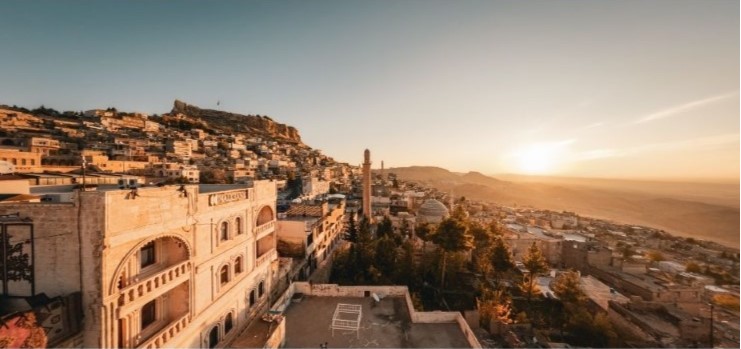Engaging, Embracing, and Eliminating the “Other”

[column width=”1/5″ title=”” title_type=”single” animation=”none” implicit=”true”]
[/column]
[column width=”2/3″ last=”true” title=”” title_type=”single” animation=”none” implicit=”true”]
Samantha just finished her 3rd year as an ELL teacher and recently relocated to Reno, NV with her husband, Kelly. She currently has an insatiable case of wanderlust and considers herself a dreamer and nonconformist.

C.S. Lewis writes in The Four Loves, “Friendship is born at that moment when one [person]says to another: What! You too?”
It’s natural for us to gravitate toward people we have a lot in common with. We have more “you too?” moments with those who are most like us–those who think the same way, speak the same language, have the same interests, etc.
But then, someone new “moves into the neighborhood”–the undocumented student at school, the Muslim family next door, the female pastor down the road, etc. Ironically, the one thing in common with all these people is something is different. They’re not slight differences, either, but ideological battlegrounds. And every battle has an enemy. So, those “you too?” moments? They become increasingly more rare as we separate ourselves from our perceived enemies. Check out an ethnic map of any major city or region of the world and you’ll see a dramatic resemblance of this. Friendship in these cases seems an unlikely result.
We like to think we are immune to what sociologists term “othering,” but no. And we feel vulnerable admitting to it, because deep down we know it is not the gospel. People really matter to Jesus. All people. Empowered by the Spirit and demonstrating the love of the Father, Jesus shows us a more excellent way as He engages, embraces, and eliminates the “other.”
Engage
I love John 1:14 in the Message, “The Word became flesh, and moved into the neighborhood.” God engaging humankind is an act of intentional proximity. Jesus’ ministry exemplifies this as he goes out of his way to touch the “untouchables” of the world and to encounter the Samaritan woman at Jacob’s well. All these were labeled “others” for various reasons.
Recently, God has arrested my heart for the Arab World. It started with an encounter between Ahmed and my husband, Kelly, at an event they both attended. Ahmed is a Muslim from an unreached people group on the Arabian Peninsula. About the same time, I was reading Live Dead – The Journey written by “missionaries who love the Arab World.” Engaging Ahmed was a matter of intentional proximity, both with our hearts and physical presence.
Embrace
Embracing others involves an exchange of life. Jesus does life with “sinners,” so much so that He is accused of being “a glutton and a drunkard, a friend of sinners and tax collectors.” By defending Mary’s right to sit at His feet in the position of a disciple, welcoming little children into His presence, and illustrating the kingdom of God with teachings that include both the rich and the poor, Jesus embraces those who are routinely sidelined.
Kelly is somewhat of a magnet for international students, so it took all of a week before he and Ahmed started meeting regularly. We asked all kinds of questions about his life journey and included him in our home, sharing our friends, food, and faith. Ahmed and I had plenty of conversations about language learning and particular issues plaguing his region. Kelly advocated for him at a dealership when he was being treated unfairly by a car salesman, and Ahmed drove four hours out of his way to pick up Kelly from the airport. Exchanging life.
Eliminate
Eliminating “otherness” is a 2-part process of reconciliation; people with each other and people to God. Speaking of the Jews and Gentiles, the quintessential “othering” relationship in the early church, Paul says in Ephesians 2 that Jesus has destroyed the dividing wall of hostility between Jews and Gentiles, and that the Gentiles (non-Jews) are now fellow citizens with God’s people and part of His family. Fortunately Jesus has done the work required for reconciliation. Will we partner with Him?
Kelly felt strongly to ask Ahmed if they could “explore the claims of Christ” together. Much to our surprise, Ahmed brought it up first. We have yet to see him make a decision for Jesus, but the dividing wall of hostility has been destroyed. Ahmed has become one of our closest friends and we love him like our own brother. We desire very much for this friend and his people to know and love Jesus, despite the incredible challenges and risks it may pose for them. But, if there’s one thing we’ve learned through this experience, in the words of Dick Brogden, Ahmed doesn’t need us, we need Ahmed. We have been eternally changed and impacted. May the Lamb who was slain receive the reward of His suffering among Arab Muslims.
Who is the “other” you’re called to engage in your community? Chances are, you need them more than they need you.
[/column]





